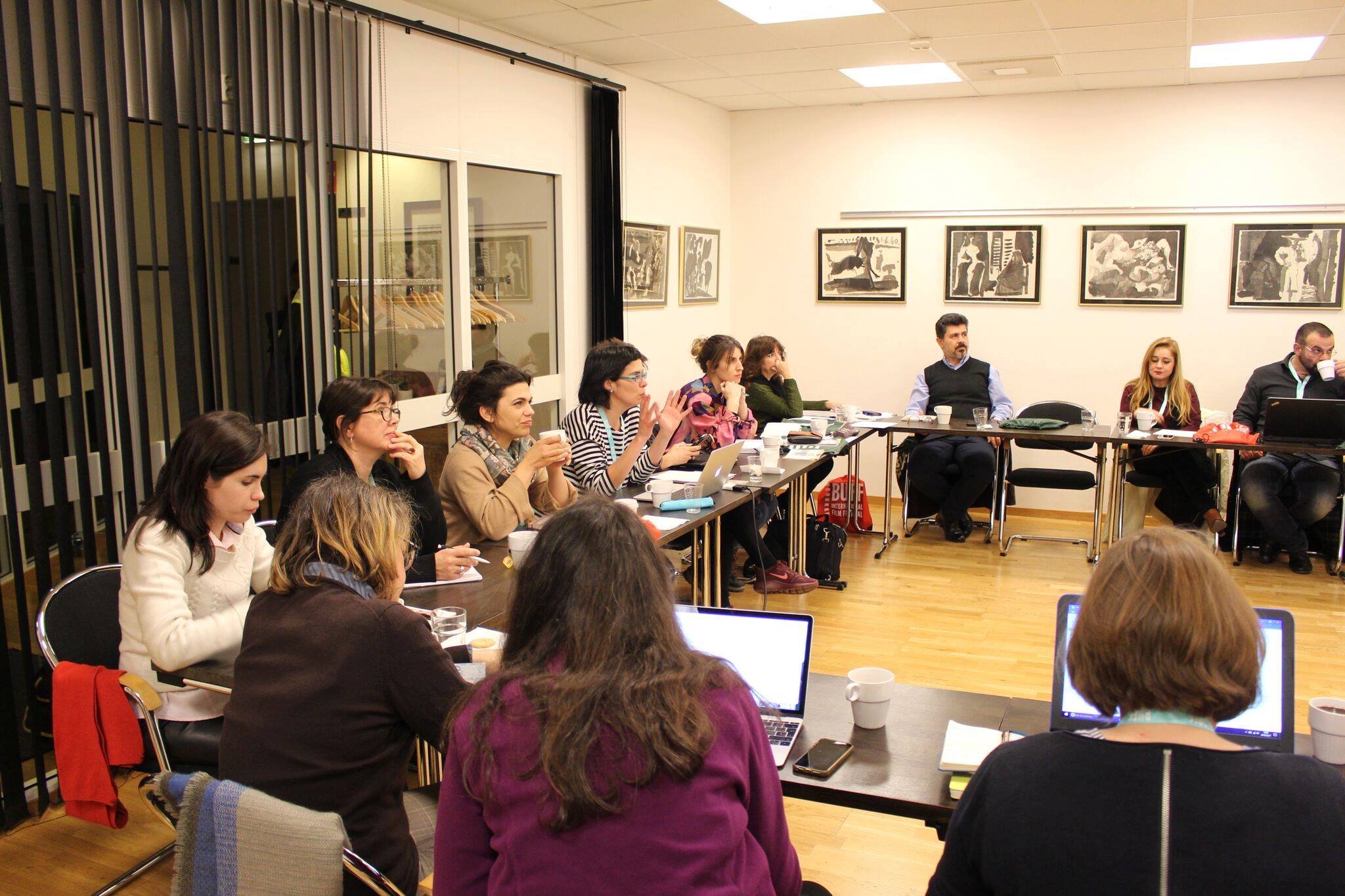About CREARTE
Creative School Partnerships with Visual Artists, is a project for experimenting pedagogies based on contemporary art practices in primary schools. The project has been co-funded with support from the European Commission (PT01-KA201-012989). Crearte integrates the following partners:
- BUFF Film Festival— Sweden
- Goldsmiths’ College — UK
- Stichting the European Regional Council of INSEA (International Society for Education Through Art) — International NGO
- University of Jaen — Spain
- Ministry of Education and Culture — Cyprus
- Cyprus Pedagogical Institute — Cyprus
- i2ADS — Faculty of Fine Arts — University of Porto, Portugal
Crearte aspires to promote creative spaces in education that will fire young students’ active participation, willingness to experiment, cooperate, imagine, think and learn in new attractive, stimulating and efficient ways. Crearte’s focus is on offering in-service teachers’ training that will promote visual arts and the cooperation with visual artists so as to transform and enrich young children’s school lives.
Through the Program, educational resources and materials will be produced to support the design and implementation of school visual arts projects so as to:
a) enhance students’ collaboration with professional adults
b) connect school life with the real world of creative professionals that could serve as role models and inspire young students
c) promote networking of schools with the creative community as well as collaborative approaches to teaching through visual arts
d) engage students from all backgrounds (minorities, lower socio-economic backgrounds, high academic spectrum) and with various abilities to collaborative research work with creative professionals as well as their fellow students and their teachers
e) provide alternative and creative spaces in the school programs so as to make teaching and learning more attractive and efficient, and achieve the development of basic and transversal skills.
Contemporary Art Practice
The visual arts curricula of the project partners’ countries encourage the focus on teaching and learning about local and international artists, and recognize artists’ contribution in the birth, development and realization of visual ideas in response to their experiences of the world.
Furthermore, utilizing contemporary visual arts in art education is a curriculum strategy that enables students to actively be engaged with current issues, dialogue and debate about their experiences of the real out-of-school world and to comprehend that visual arts are linked to important issues such as personal and cultural identity, family, community and nationality. It also aims to promote cultural understanding through the various social issues that many contemporary artists investigate in their artwork.
Pedagogical Advocacy
For the utilization of the visual arts projects at the involved countries Crearte suggests child-centred pedagogies that focus on experiential learning and explorative approaches, and emphasise the exploitation of the interests and experiences of students in realauthentic situations. Students create according to their experiences and construct connections with the art world regarding their own ideas.
The multimodal expression and creation is emphasized, as well as the in-depth exploration of materials and ideas; the acceptance of subjectivity; multiple interpretations and diverse ways of learning; the advancement of critical thinking and research.
Diversity of Approach
Crearte encourages diversity and flexibility in designing and delivering the art projects. Important questions that need to be answered are when, where and how students could be engaged in learning procedures. Various teaching strategies could be utilised such as play, dialogue, investigation of materials and ideas, experimentation, visual research, debate, interaction with authentic situations/artefacts/people, reflection, dissemination of ideas.
Crearte in Action

The Project coordinators are developing communication channels and foster professional enhancement for the design and exchange of good practices that take place in the partner countries, and involve primary school partnerships with visual artists mainly through the training meetings and a virtual platform. In the first training hold in January in the Faculty of Fine Arts in Porto and in Quinta da Cruz, Viseu - Portugal, the partners developed main guidelines for the project implementation in schools and learned from each other about art education and contemporary art in education in the different countries of the partnership.
Crearte's outcomes
Implement pedagogical projects are expected to:
- explore potential systemic and interpersonal collaborative challenges that artists and schools have to overcome,
- to design and deliver teaching strategies that corresponds to the needs of contemporary schools and societies and their complexities.
- to provide teachers with methods, tools and resources so as to be able to design collaborative and authentic projects that meet the needs of their school units and the particularities of their students.
- to strengthen the leadership and research role of primary teachers so as to design their own visual arts curricula, in accordance with the context of their work space and place
- to address the increasingly diverse needs of contemporary schools and societies that are invited to enhance intercultural cooperation and dialogue, intergenerational relations, and active citizenship.
Crearte in numbers
Portugal
- 14 artists developed projects in primary schools;
- 28 teachers worked in collaboration with the artists;
- more than 560 children participated in CREARTE;
- 13 primary schools hosted the artists’ projects;
Cyprus
- 19 artists developed projects in primary schools;
- 14 teachers worked in collaboration with the artists;
- between 350 and 400 children participated in CREARTE;
- 16 primary schools hosted the artists’ projects;
Sweden
- 2 artists developed projects in primary schools;
- 2 teachers worked in collaboration with the artists;
- 60 children participated in CREARTE;
- 1 primary schools hosted the artists’ projects;
Spain
- 11 artists developed projects in primary schools;
- 15 teachers worked in collaboration with the artists;
- more than 150 children participated in CREARTE;
- 4 primary schools hosted the artists’ projects;
United Kingdom
- 3 artists developed projects in primary schools;
- 15 teachers worked in collaboration with the artists;
- more than 50 children participated in CREARTE;
- 1 primary schools hosted the artists’ projects;
